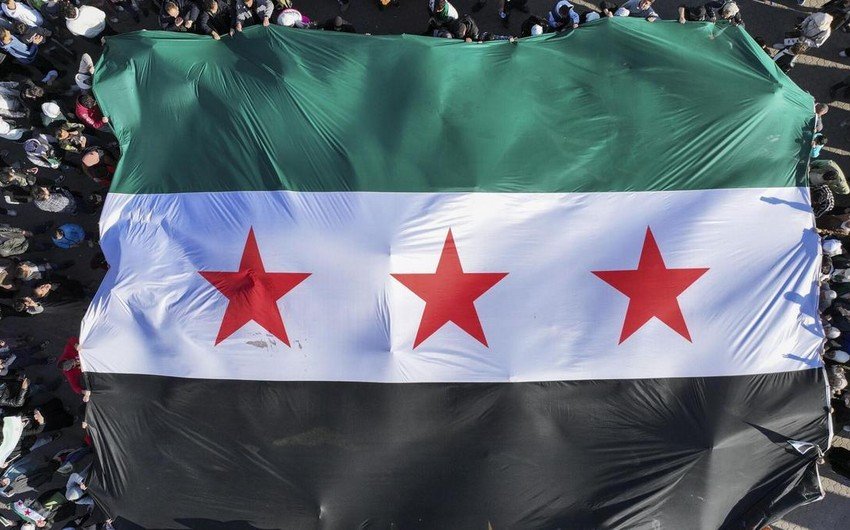While the world’s attention flits between Ukraine and Gaza, the real crucible of the Middle East’s future may once again be Syria. Behind closed doors and shaky ceasefires, the pieces of a high-stakes geopolitical puzzle are quietly moving across Damascus, Suwayda, and even Ankara. The question is no longer if Syria will collapse again—but how the region will react when it does.
According to diplomatic sources, officials from the U.S., Israel, and Syria are set to meet on July 24 in southern Syria. Their agenda? Avoiding a catastrophic escalation and preventing a second civil war. But the underlying crisis is already dangerously advanced.
President Ahmed al-Sharaa, who rose to power after the fall of the Assad regime, has failed to fully consolidate control. His administration, recognized by the international community, is facing rising pressure from two potent threats: Druze militias supported by Israel and the Syrian Democratic Forces (SDF), the Kurdish-dominated successor to the U.S.-backed YPG/PYD. Both actors pose an existential challenge to Syria’s territorial integrity and national unity.
Meanwhile, the U.S. ambassador to Turkey and special envoy to Syria, Tom Barrack, gave a sobering interview. His message was stark: without swift military and institutional reform, Syria could descend into a state worse than Libya or Afghanistan. Barrack even warned that al-Sharaa’s initial support base—the Islamic religious factions—might lose momentum unless he reorients toward inclusivity and strategic cooperation with regional allies.
His recommendations to Damascus were pragmatic but urgent:
Rebuild the Syrian army from scratch to eliminate remnants of Assad-era forces and prevent manipulation by jihadist elements;
Dismantle the ideological influence of Islamist hardliners;
Reopen requests for defense support from regional actors—most notably Turkey;
Engage in direct dialogue with Israel to prevent a proxy meltdown;
Abandon any illusions of alternative leadership from Washington: there is no “Plan B” for Syria;
Embrace a political path based on unity, rule of law, and diversity.
In short, the U.S. appears to be offering conditional backing—help without nation-building, support without occupation. But the warning is implicit: time is short.
The parallels to Egypt and Libya are instructive. Mohamed Morsi’s Islamist-led government in Egypt was eventually toppled not just by a military coup, but by its inability to reassure Western and domestic actors. Libya, still recovering from Qaddafi’s violent ouster, became a proxy battlefield. In both cases, foreign support evaporated when ideological rigidity trumped statecraft.
Syria stands at a similar crossroads. A fragile ceasefire in Suwayda, brokered with the help of the U.S., Turkey, Saudi Arabia, Jordan, and the UAE, is barely holding. Druze leaders continue to demand autonomy, the SDF refuses to disarm, and foreign actors circle like vultures. Add to this mix Israel’s strategic anxieties and the potential withdrawal of U.S. troops, and the result could be a devastating power vacuum.
And now, there’s a twist: Damascus has reportedly requested formal military support from Turkey. Ankara has not yet commented, but the implications are immense. A Turkish deployment—under an official bilateral framework—could upend the military balance in Syria and alter the trajectory of the region.
Foreign Minister Hakan Fidan has already issued a veiled warning to destabilizing actors: if violence threatens Turkey’s national security, Ankara “will intervene.” He urged dialogue but left no doubt that patience has limits: “Do not assume chaos will yield autonomy,” he said.
If Turkey steps in, it would not be the first time Ankara recalibrates the balance of power in a fractured Arab state. In Libya, Turkish intervention rescued the UN-backed government from collapse and helped stabilize the western part of the country. Could Syria be next?
Interestingly, Baku may once again serve as a quiet host for high-level diplomacy. Israeli and Syrian officials previously met in Azerbaijan’s capital to discuss security guarantees and the status of minority groups like Druze and Alawites. Sources suggest new negotiations may soon resume there to address the disputed Suwayda region.
Make no mistake: the future of Syria is more than a domestic crisis—it’s a bellwether for the Middle East. If diplomacy fails, and Syria becomes another Afghanistan, the region will suffer a wave of instability, extremism, and mass displacement.
But if Syria can emerge from the ruins with help from its neighbors—and a sense of reality—it may yet serve as the foundation of a new, more stable Middle East.
The stakes could not be higher. As ever, the fate of the region is being written in Damascus.


